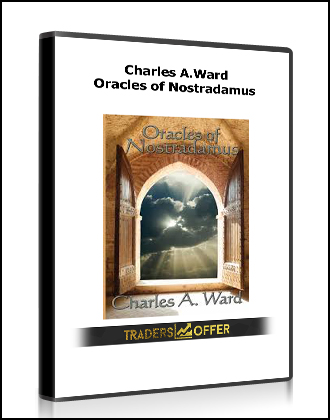
Charles A.Ward – Oracles of Nostradamus
Price: $25
Please contact us: – Email: Tradersoffer@gmail -Skype: [email protected]
Charles A.Ward – Oracles of Nostradamus
Ward is one of the best known ‘Nostradamians’. He is an emphatic believer in the accuracy of the predictions, and he marshals a huge amount of linguistic and historical erudition to make his case.
Ward makes some key points for any prospective interpreter of Nostradamus. First of all, Nostradamus’ text is not written entirely in French; certainly it would not serve as a good text to learn modern French. He mixes 16th Century French, Latin, Lang d’Oc (a Provençal dialect of French similar to Catalan), words of his own invention such as anagrams and strange amalgams; as well as (cue echo chamber) words from the future. Ward notes (see page 130) that Nostradamus uses a slang word, in context, for a component of an improved flintlock (‘dog’) nearly a century before it was invented. Nostradamus also uses a term for conscription (see p. 248) in a sense not used until about 1800.
Another point which comes up again and again is that it is almost impossible to use Nostradamus to actually predict events. The predictions usually only make sense in hindsight. It is far too easy to predict ‘there will be earthquakes, floods, famine’. What distinguishes Nostradamus is the accuracy of his ‘hits’ when viewed in the rear view mirror. In particular, Wards’ exposition of Nostradamus’ presages of specific events of the French revolution is one of the strongest portions of the book. Nostradamus predicts details of the unfolding events that are far too close to be coincidence, yet would have made no sense whatsoever when first published. For instance, constant reference to ‘a place of tiles’ is made (the Tuileries), long before it was constructed.
Lastly, Ward makes an interesting speculation about Nostradamus’ method. He hypothesizes that Nostradamus viewed and heard the events he described in sequence, and wrote prose notes; subsequently he composed the enigmatic poetry, cut them into separate verses and randomized them (anticipating the surrealist poets, perhaps?). Although Ward only details 15% of Nostradamus’ verses, he ties them together into a sequence which makes a great deal of sense.
